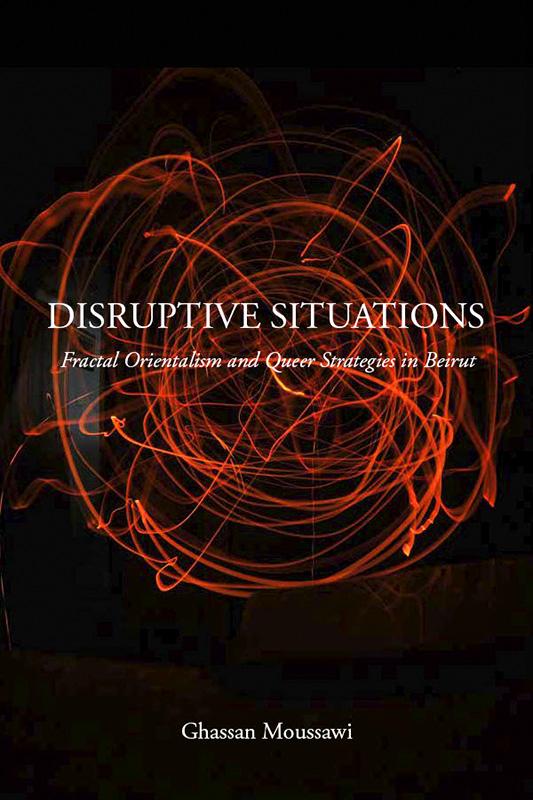University of Illinois professor Ghassan Moussawi examines the daily survival strategies of Beirut’s LGBTQ residents in his new book ‘Disruptive Situations: Fractal Orientalism and Queer Strategies in Beirut’

Credit: Courtesy Ghassan Moussawi
CHAMPAIGN, Ill. — Daily life in Beirut is subject to violence and an ever-changing series of disruptions – a reality that residents refer to as “al-wad” or “the situation.”
Ghassan Moussawi – an ethnographer and a professor of gender and women’s studies and of sociology at the University of Illinois, Urbana-Champaign – looks at the daily survival strategies of Beirut’s LGBTQ residents in the face of al-wad in his new book “Disruptive Situations: Fractal Orientalism and Queer Strategies in Beirut,” which was published this summer.
“To be in Beirut is to understand ‘the situation’ without having to explain it. It keeps changing from a lack of resources such as electricity to bombings, war, a garbage strike,” Moussawi said.
It’s similar to the uncertainty and the struggle to adapt to changing circumstances that we all find ourselves in during the COVID-19 pandemic, he said.
“The book helps us understand what it means to live in a disruptive moment that keeps changing. It has no beginning nor end,” Moussawi said.
Beirut has been promoted as an exceptional place for LGBTQ people and a gay-friendly destination in the Middle East. Moussawi examined representations of Beirut and how it is positioned as exceptional and modern, likened to Provincetown, Massachusetts. But this gay-friendly Beirut is available along the lines of class and race, and ignores the realities of al-wad, he said.
He challenges how sexuality is used to provide an exceptional narrative about Beirut by comparing it with cities in the U.S. and Europe as reference points. Moussawi said “fractal orientalism” implies looking at patterns of representation – traditional versus modern, backward versus progressive – repeating on multiple scales. For example, Lebanon is compared to other countries in the Arab Middle East, and Beirut is compared to both American and European cities and other cities in the Middle East. The West is viewed as more tolerant than the Middle East, Lebanon more tolerant than other Arab countries and Beirut more tolerant than other areas within Lebanon.
“They are blanket statements about who is more progressive, who is gay, who is tolerant. In one way, fractal orientalism is the problem I tried to attend to or unpack by looking at queer strategies of everyday survival,” he said.
Moussawi’s book does not document gay life in Beirut, but it uses LGBTQ people’s strategies for daily life as a lens to look at how people navigate everyday violence and constant disruption that is always taking new forms. The precarious situation of daily life in Beirut is itself queer, as are the strategies used in order to survive, and they are at odds with descriptions of Beirut and gay life there as exceptional, Moussawi wrote.
He is interested in what the tactics of daily life tell us about local and regional politics. The strategies people adopt to deal with al-wad include accepting contradictory messages – for example, nonbinary individuals who see their gender identity as fluid, or those who refuse to reconcile their queer identity with their identity as Muslims because they don’t see them as incompatible, he said.
“Things don’t have to fit neatly,” Moussawi said. “In order to live in this situation, you can’t try to make sense of it, though you feel its disruptions. Language fails to account for experiences, but affect doesn’t.”
Beirut residents also create “bubbles” – physical or metaphorical spaces that provide a respite from the situation and in which they feel safe. They can be spaces to share their emotions or connect with others.
“They are aware (the bubbles) could be taken away at any moment, and they are not accessible to everyone. You have to have some element of privilege to forget that there is ongoing violence,” Moussawi said.
The strategies Moussawi describes for living with violence and disruptions also can be applied to segregated U.S. cities with high levels of violence and a lack of basic resources due to state neglect, he said.
“This applies to spaces that don’t have actual war or conflict. It’s traumatic but people create certain strategies for survival,” he said.
Moussawi had to adapt to the changing circumstances in Beirut while conducting his research. It was interrupted at times by violence, just as the pandemic is interrupting travel to research sites, he said.
###
Editor’s notes: To contact Ghassan Moussawi, email [email protected].
Media Contact
Jodi Heckel
[email protected]
Original Source
https:/




